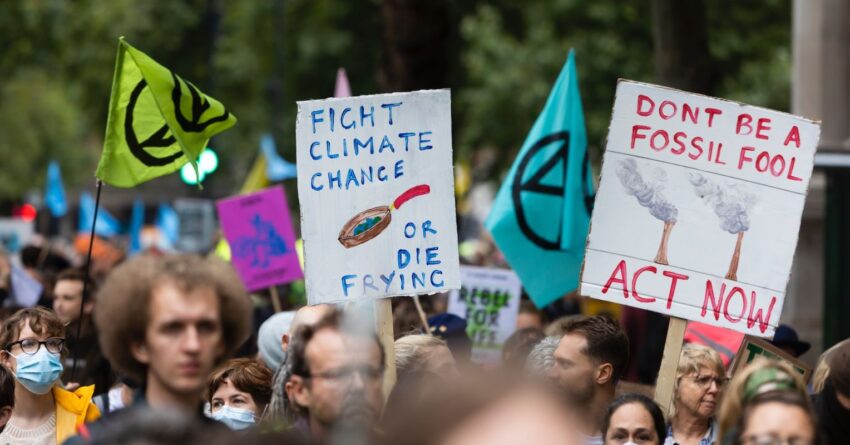-5543181_0.jpg?itok=WdY-O3_O)
Source: Mental Health America (MHA) / Pexels
It’s all over the news these days.
Forest fires in Canada. Extreme heat in Arizona and Texas. Flooding in Vermont, droughts in the Midwest, and tropical storms in California. It’s getting hard to check in on current events without being bombarded with the latest catastrophic effects of climate change.
Increasingly, Americans are worried about these trends: In 2020, the American Psychological Association found that more than two-thirds of U.S. citizens felt some kind of climate-related anxiety. British medical journal The Lancet has reported, as recently as December 2021, that 84 percent of young adults they surveyed, between the ages of 16 and 25, were at least “moderately worried” about these issues, and almost 60 percent were “very or extremely worried.”
That same year, Google indicated to several news organizations that Internet searches for “climate anxiety” had increased by over 500 percent.
That search phrase says it all. If you find yourself ruminating about the health of the planet in the near future—for your own sake, or the sake of your children—you may be feeling what’s known as climate anxiety, or alternately, eco-anxiety.
You could be experiencing intrusive, distressing thoughts about the kind of climate-related disasters you’re already seeing in the news, or you might be worried about the long-term future of humanity on the planet. Perhaps you also have physiological symptoms like shortness of breath or a racing heart rate; maybe these worries have already begun to intrude on your sleep, your relationships with others, or your ability to do your job.
If this describes you, you may benefit from learning to incorporate some general anxiety-reduction strategies into your routine.
First, the basics, as many professionals will tell you, healthy sleep is important to mood regulation. Try to get enough rest each night, and exercise as regularly as possible, which in turn can help you sleep.
You might also consider making healthy changes to your eating habits, as well, because treating yourself to sweets too often or trying to soothe your anxieties with high-calorie rewards, isn’t likely to work over the long term.
The same can be said of alcohol. Instead, identify some activities that will help you “change the record” in your mind. Reading fiction, playing video games, or going for a walk in the park (or in the woods, if you have the chance) could help you bring down your overall anxiety level.
Because none of us can stop the apparent onslaught of climate change-related news, other, more specific strategies might be necessary to manage it.
- Try to absorb the flood of climate-related information carefully, and find ways to reduce your information consumption. One way to do this is by limiting yourself to a few information sources that you know you can trust—sources that don’t state the problem in exaggerated or inflammatory ways.
- Similarly, staying in touch with like-minded friends or family members who understand you, and can have conversations about climate-related issues without making the problem seem worse, can allow you to process new information in a gentler, less catastrophic way.
- Staying connected to other people is especially important in dealing with climate anxiety. Feelings of helplessness or preoccupation tend to dissipate when you’re plugged into a group of like-minded people.
- Try to focus on what you can do and what you are doing, not what other people, groups of people, or governments may be failing to do. Consider, for example, joining one of the many organizations that are actively working on the problem of climate change.
- Social networks, like ISeeChange.com, allow members to post their climate change observations, chat with like-minded folks, and improve each other’s awareness of the way local trends may link up to larger ones.
- Or if you prefer to socialize in person, you could sign up to join a Climate Cafe—an unofficial community-building event that enables people to share information, discuss their concerns, and build connections. (You can even host one if that’s more your speed.)
- And if these particular organizations don’t seem like a good fit, there are many more; online, it’s not hard to find a list of groups working on the climate crisis. Follow your unique interests and choose a group that fits your particular climate-related concerns (such as food and water safety, carbon dioxide reduction, forced migration, emissions, or any other specific issue).
Whatever you do, please don’t feel you must suffer climate anxiety alone. Find a way to connect to others who share your concerns; it will help you feel better, and will likely allow you to work toward positive change, as well.
To find a therapist, visit the Psychology Today Therapy Directory.
